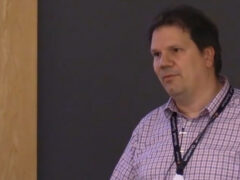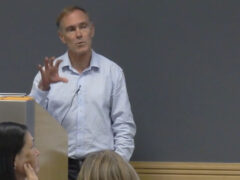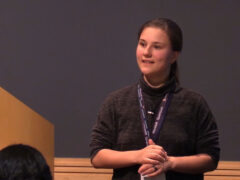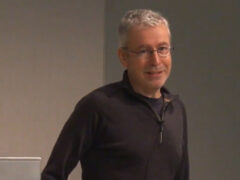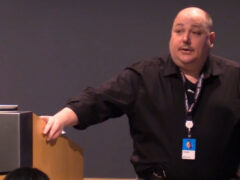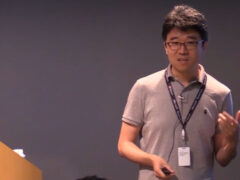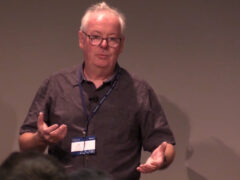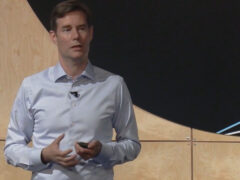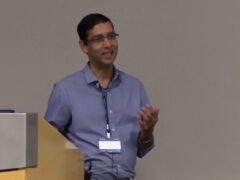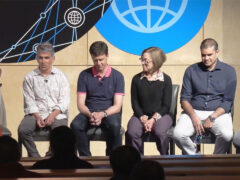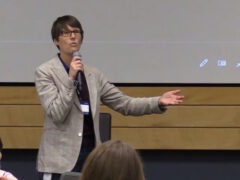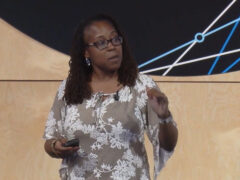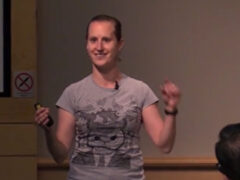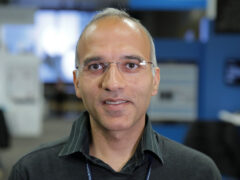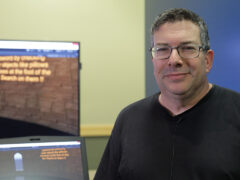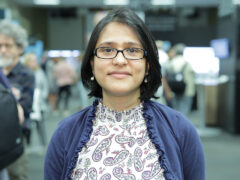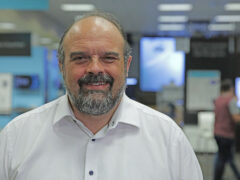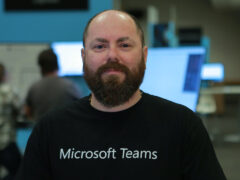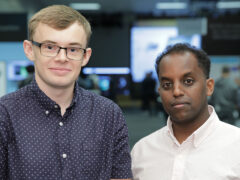Innovations and Research Highlights in Attracting Women in Computing
With 1.4 million open jobs in computing by 2018 and only 29 percent of those expected to be filled by women, there has been much research and investigation into how to increase the pipeline. In this session from the 2013 Microsoft Research Faculty Summit, top researchers and experts who are making strides in this critical area discuss the challenges and the research collaborations with Microsoft Research that are making a difference in growing more women in computing.
Participants in this session of the 2013 Microsoft Research Faculty Summit are encouraged to become active in the movement to facilitate greater diversity among computer scientists.
Speaker Details
Tiffany Barnes is an associate professor of Computer Science at North Carolina State University (NC State) and received her Ph.D. from NC State in 2003. Her research focuses on serious games and artificial intelligence in education, particularly how to develop games to teach computing and how to use computing to improve learning software. She directs a project to train 100 high school teachers to teach the Beauty and Joy of Computing version of the new AP CS Principles course. Barnes received a CAREER Award from the National Science Foundation for her novel work in using data to add intelligence to STEM learning environments. She has co-led the NSF-funded STARS Alliance effort to build a community of college faculty and students who perform student-led outreach, research, and service to broaden participation in computing. She serves on the ACM Special Interest Group in CS Education (SIGCSE) Board, and has been on the organizing committees for conferences, including Educational Data Mining and Foundations of Digital Games. She has served as associate editor for the Journal of Educational Data Mining and was a guest editor for IEEE Computer Graphics and Applications.
Juliana Salles is Microsoft Research Connections’ senior research program manager in Brazil, where she engages with academics to identify globally critical, high-impact research projects. She is currently working on projects that use technology to enable or accelerate knowledge in such areas as tropical environments and their response to climate change, bioenergy, and biodiversity. She is also leading initiatives to attract and retain women in computing in Latin America. Juliana has a PhD in human-computer interaction and since joining Microsoft has worked as a UX researcher for several product teams, including Visual Studio, Windows Live, and Windows Live Mobile. Her interests include user research techniques and methodology and their integration with the software development process.
- Date:
- Speakers:
- Constance Steinkuehler, Juliana Salles, Kathryn McKinley, Lucy Sanders, and Tiffany Barnes
- Affiliation:
- North Carolina State University, Microsoft Research, National Center for Women and Information Technology (NCWIT), Microsoft Research Connections, University of Wisconsin
-
-
Jeff Running
-

Juliana Salles
-
Kathryn McKinley
-
-
Series: Microsoft Research Faculty Summit
-
-
Quantum Computing and Workforce, Curriculum, and Application Development: Case study
Speakers:- Krysta M. Svore,
- Martin Roetteler
-
-
-
-
Crowd, Cloud and the Future of Work: Updates from human AI computation
Speakers:- Besmira Nushi,
- Vani Mandava
-
-
-
-
-
Empowering People to Achieve More: How Useful a Concept is Productivity?
Speakers:- Brendan Murphy
-
-
Productivity in Software Development
Speakers:- Neel Sundaresan,
- Margaret-Anne Storey,
- Prem Kumar Devanbu
-
-
-
-
-
-
-
Accessible Virtual Reality
Speakers:- Eyal Ofek
-
Calendar.help: A Virtual Meeting Scheduling Assistant
Speakers:- Pamela Bhattacharya
-
Visual Studio IntelliCode
Speakers:- Mark Wilson-Thomas
-
Microsoft Teams: Collaborate with Any Researcher Anywhere
Speakers:- Jethro Seghers
-
Project Alava: Programming Webs of Microcontrollers
Speakers:- James Devine,
- Teddy Seyed
-
AI in PowerPoint
Speakers:- Kostas Seleskerov


